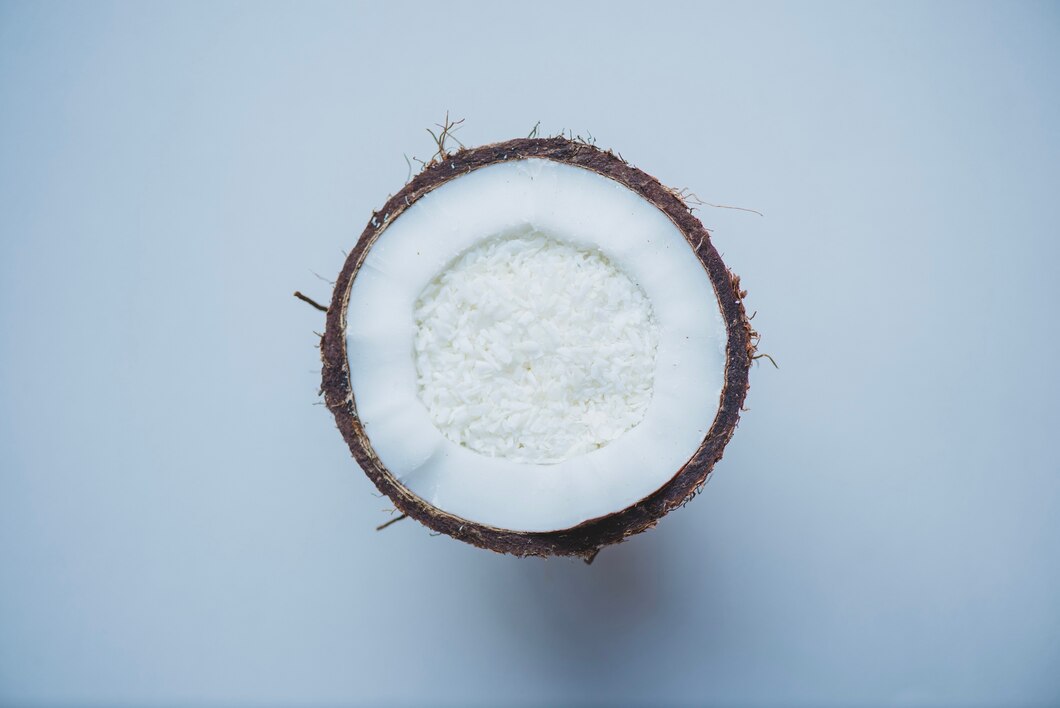Various health research studies claim that coconut oil can work wonders for eczema, a skin condition marked by itching, redness, and scaly patches. But getting straight to the point, is coconut oil a cure for eczema? The short answer is no. So what’s the fuss about coconut oil in eczema treatment?
It is believed that coconut oil reduces symptoms caused by eczema as it soothes the skin, eases irritation, and reduces the risk of infection. Several studies back this claim, and when the news spread online, numerous businesses started to import bulk organic coconut oil to reproduce their own versions of the fancied eczema elixir.
This article takes a close look at the science behind coconut oil’s power to negate the symptoms of the dreaded skin disease. Read on.
The Organic Composition of Coconut Oil
Coconut oil produces a healthful fatty acid called lauric acid, an element that is found in breastmilk. This particular acid is used as an ingredient in organic cures for all kinds of health issues.
To set the record straight, coconut oil does not cure eczema, and no cure has been made to fight and kill the condition even to this day. Instead, what coconut oil treats is the symptoms of eczema.
Delving deeper, research findings have shown some soothing effects and healthful benefits coconut oil has in combating eczema. These include:
- improving skin hydration;
- skin protection since it has anti-inflammatory properties;
- antioxidants supporting the treatment of skin conditions; and
- reduces the presence of bacteria, viruses, and fungi.
These claims have made coconut oil even more popular as a natural remedy not only for eczema but for other skin conditions.
How To Use Coconut Oil to Treat Eczema Symptoms
Coconut oil can be solid or liquid. Both can be applied to the skin. When using solid coconut oil, scoop a small amount between your fingertips to soften it slightly. Apply it to the skin that has eczema symptoms at least twice a day.
It is also best to apply coconut oil to the skin as soon as the symptoms arise. Using coconut oil would improve the condition of the skin and prevent symptoms from recurring or getting worse. Apply oil in the evening when your skin is feeling dry in the morning.
If eczema has developed on the scalp, replace your hair conditioner with coconut oil. Apply the oil directly to the scalp and massage it gently. After a few minutes, rinse off with warm water.
Side Effects of Coconut Oil
Because it is an all-organic remedy, does this mean that coconut oil is 100 percent safe? Good question.
Normally, coconut oil works without any side effects as a skin problem remedy. However, people who have allergies to coconut can develop skin irritation when the oil is applied. To determine whether you have a coconut oil allergy, you can conduct a simple test by cleaning an area where you will test your body’s reaction to coconut oil. Apply a minimal amount of coconut oil on it, place a bandage on top, and wai for some manifestations of allergies or irritation. If unsure, you can consult an allergist to have your skin tested.
Conclusion
Coconut oil is a natural remedy for skin problems and is generally safe. If you are treating eczema, it is best to consult your doctor before applying coconut oil to ensure that your skin will have no adverse reaction. While it can be beneficial in treating symptoms, coconut oil is not a replacement for your eczema medication.
Are you looking for an organic coconut supplier? Ceylon Exports & Trading is an organic certified manufacturer and exporter of edible coconut products. We are registered under the Coconut Development Authority and the Export Development Board of Sri Lanka. Contact us today!







